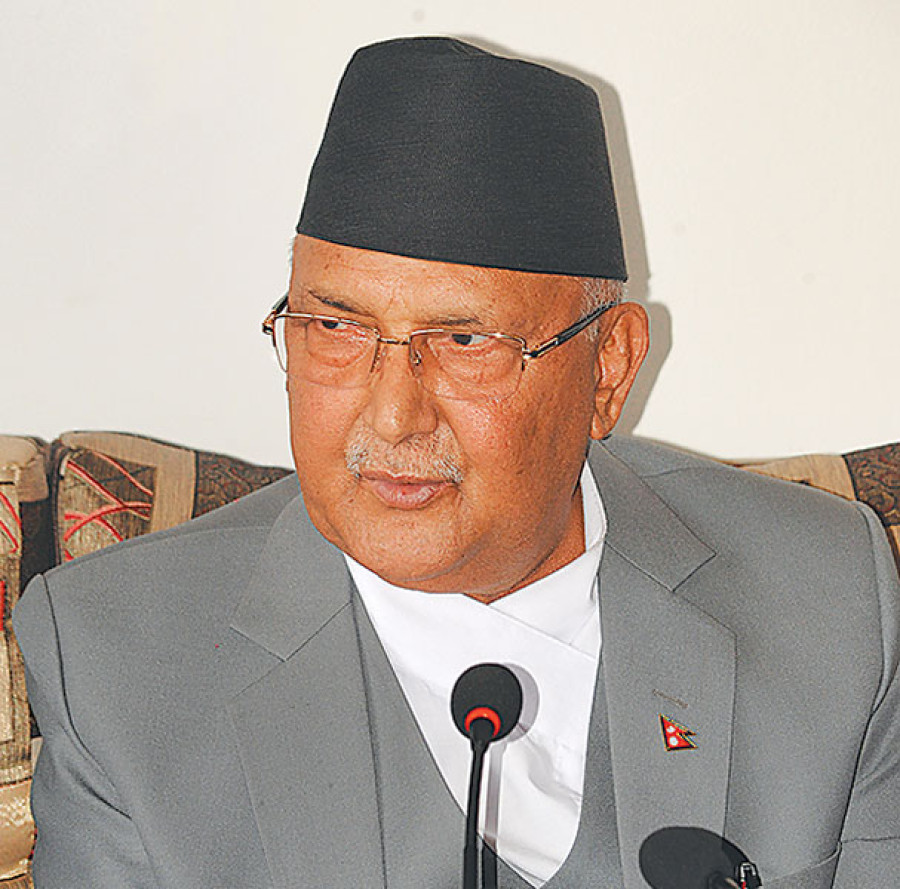National
PM hails rail pact with China
Prime Minister KP Sharma Oli has hailed the pact on railway connectivity with China as an important outcome saying, however, that extension of the rail towards Kathmandu from the northern border would take time.
Prime Minister KP Sharma Oli has hailed the pact on railway connectivity with China as an important outcome saying, however, that extension of the rail towards Kathmandu from the northern border would take time.
Upon arrival from Lhasa at the Tribhuvan International Airport on Sunday, PM Oli remarked that his China visit had ended on a positive note. He termed the memorandum of understanding on railway connectivity as a vital document between the two countries, one that lays the ground for trans-Himalayan connectivity in the days to come.
“Chinese President Xi Jinping told me about his vision of extending Chinese rail down to Nepal,” PM Oli told journalists, adding that a feasibility study on the link would be conducted after July.
“We’ll take matured decisions on railway. We have yet to complete negotiations on extending the railway whose modality is being discussed.”
Terming the agreements reached with China during his visit as important, PM Oli said it was a daunting task building a railway on the Nepal side since the topography was more challenging than on the Tibetan plateau.
“The Tibetan Plateau is plain. Down to Nepal after crossing Tibet, the land is a slope. Since connectivity and railway are new phenomena in Nepal, we should not decide in a hurry,” the PM said.
The Chinese rail is expected to reach the Nepal border by 2022. In a milestone agreement, feasibility study with a Chinese grant on building the Kerung-Kathmandu railway via Rasuwagadhi would be conducted soon, said the PM. This would be the basis for construction of the Kathmandu-Pokhara-Lumbini railway, according to a press note provided to the media.
“Those who have money will fund the project,” the PM said. Once study finds the rail project technically feasible, the two governments would discuss the funding modality.
On his visits to both of Nepal’s immediate neighbours—India and China, PM Oli said his motive was to “solicit their goodwill and support”. Oli said that focus now should be on effective implementation of the agreements reached with the neighbours for Nepal’s prosperity. He stressed that both sides have agreed to extend cooperation on railway, roads, ports, air routes and communications.
Concerning the Nepal-China joint statement, Oli said it followed extensive preparations and rigorous discussion between the two sides. Additional study would be necessary to develop the Koshi and Karnali economic corridors, and the Gandaki corridor. Airlines companies on both sides would be encouraged to operate more direct flights between the two countries.
According to the press note, discussion on the protocol of bilateral Transit and Transport Agreement would be held in July. The Tatopani border, shut after the Gorkha Earthquake, would reopen by May 2019 while the Rasuwagadhi-Kerung border is upgraded.
The Chinese side has agreed to conduct a feasibility study for oil and gas exploration in Nepal and to help build fuel storage facilities. The northern neighbour has also promised transfer of post harvest technology to boost agricultural output.




 9.89°C Kathmandu
9.89°C Kathmandu













